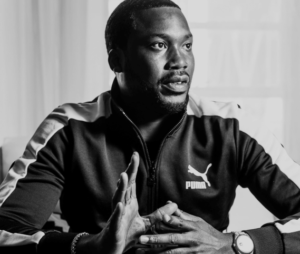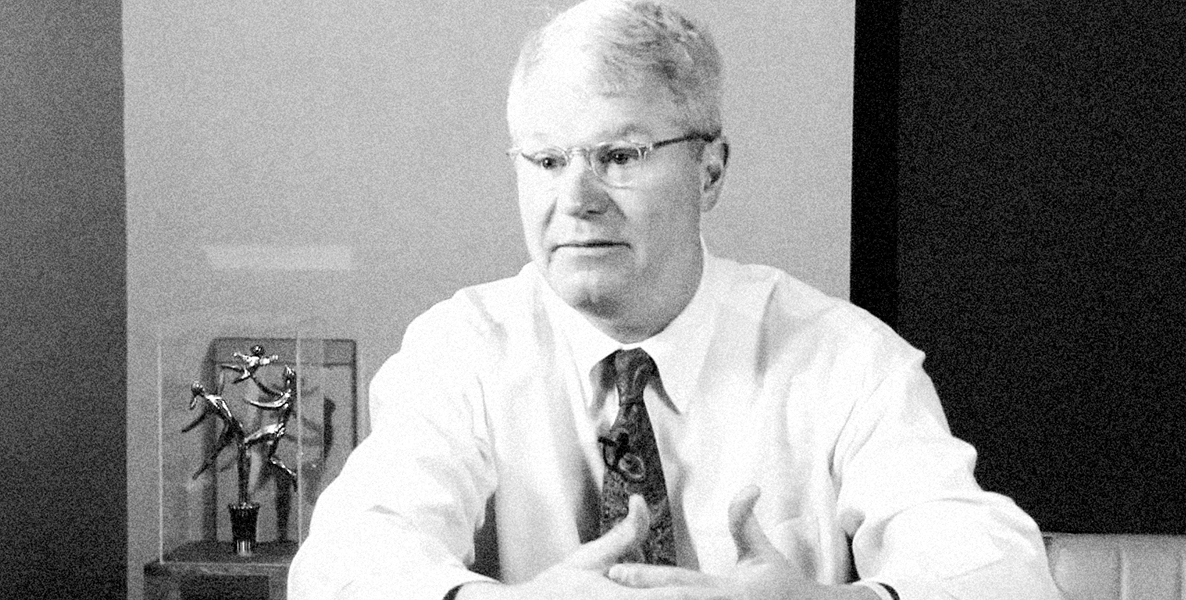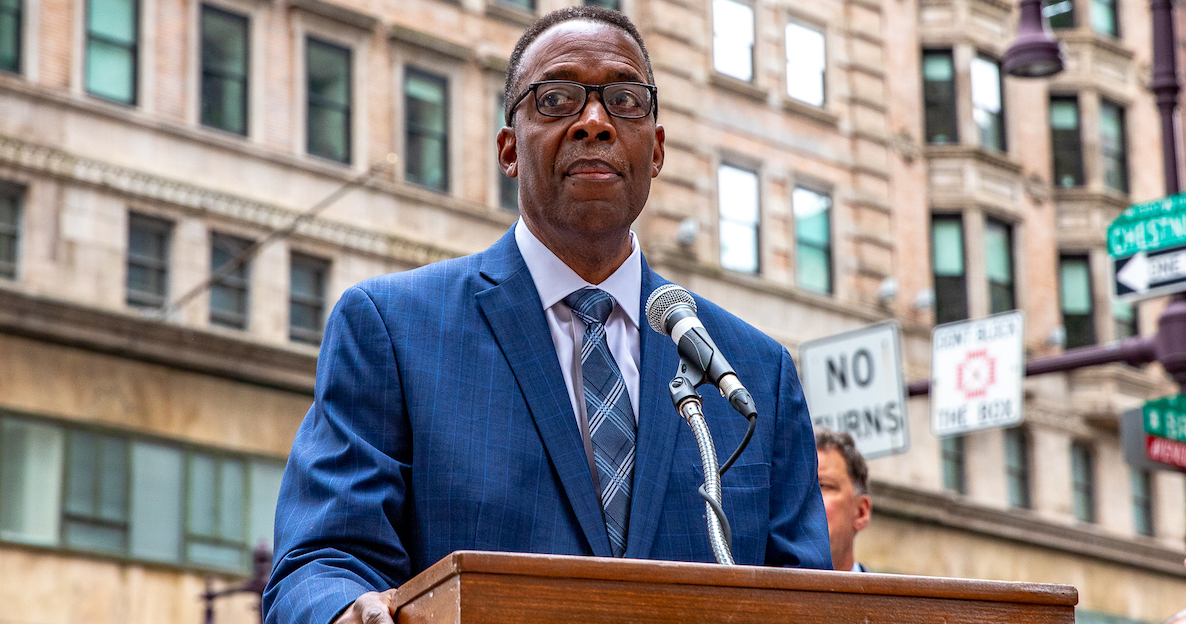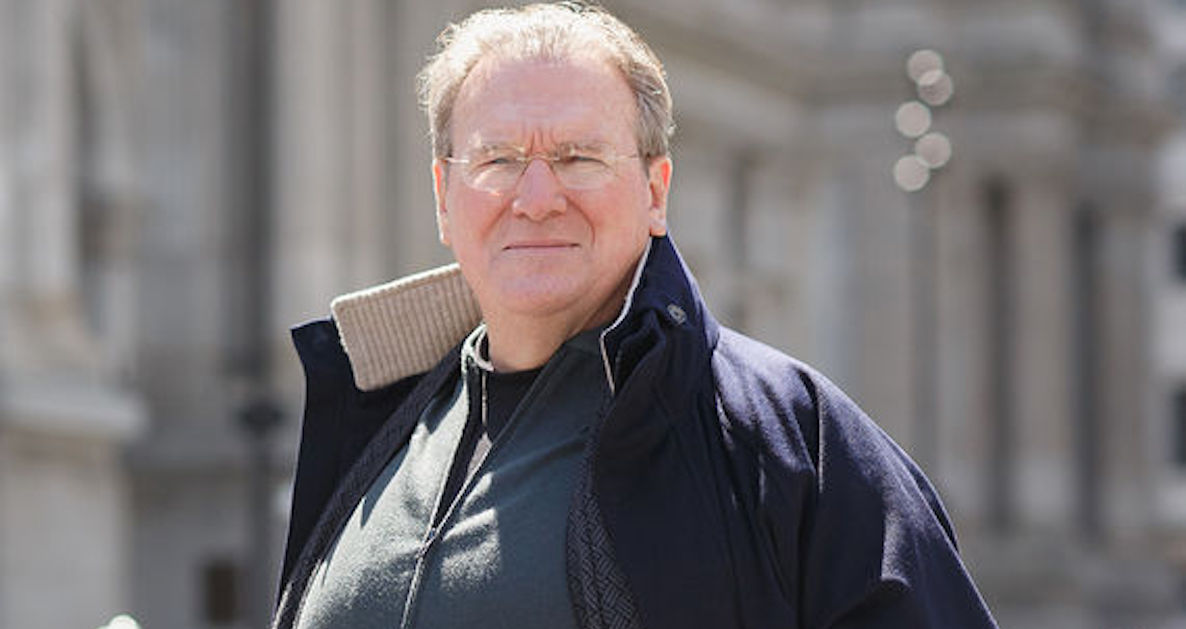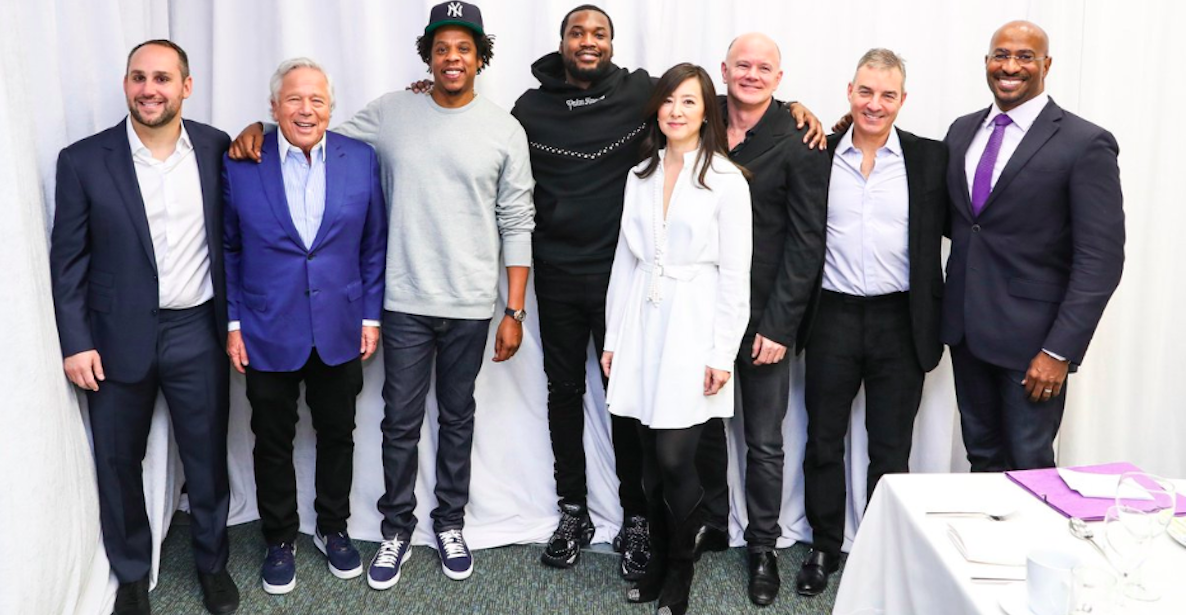This isn’t the way it’s normally done. Normally, a bold-face name in pop culture America picks a cause, starts a foundation, and spends six figures so press releases can hype his or her role in making the world a better place. It’s usually purposefully vague — long on mission, short on goals and timetables. But plenty of Instagram photos showing said bold-faced name posing for photos with smiling kids basking in a celeb’s largesse.
This is not to hate on such run-of-the-mill charity. It’s all good. But there’s nothing transformative about it. It’s nice, and to the individual recipients of such generosity, it can be life-changing. But it doesn’t change systems.
For a fleeting moment, after his life changed on November 6, 2017, billionaire entrepreneur Michael Rubin could have gone that route. He had stood in a Philadelphia courtroom and watched one of his best friends, the rapper Meek Mill, carted off to jail for a phantom parole violation — 2 to 4 years, in the vindictive estimation of Judge Genece Brinkley, for popping a wheelie on a dirt bike and for breaking up a fight in an airport, neither of which warranted charges. Instantly, Rubin was determined to get his friend out of jail. But the more he dove in, the more he learned that Mill was just one of many victims of a criminal justice system run amok. That’s when he had a decision to make.
“We’re all products of our environment,” Rubin says. “I say this all the time. If I grew up where Meek grew up? I’d be the most successful drug dealer on the planet. I’d be Pablo Escobar.”
“I could have put six figures into a foundation and done interviews about how messed up this was,” Rubin told me one recent morning, fresh from the New York press conference announcing his ambitious foray into criminal justice reform. “But you go big or go home.”
So, in keeping with his life story, Rubin went big. The results were on that New York press conference stage on January 23. Rubin recruited a dream team Board of Directors for the REFORM Alliance, and they were with him in New York: Three pro sports team owners (Rubin, New England Patriots owner Robert Kraft, and New Jersey Nets co-owner Clara Wu Tsai) and two rappers (Jay-Z and Meek Mill) among them. Together, the Board is seeding REFORM with $50 million, and has hired the charismatic Van Jones to serve as their CEO.
Our goal is simple – Get 1 million people out of the criminal justice system. After witnessing the injustices that took place with @meekmill – it was a complete wake up call. It’s time to change a broken system starting TODAY. Proud to be on this team! #Reform #FightDifferent pic.twitter.com/1ZqRYJjP9L
— Michael Rubin (@michaelrubin) January 23, 2019
At the press conference, Rubin went through the statistics: how there are 2.2 million Americans in prison or jail, and another 4.5 million trapped in the parole or probation vortex. In a moving video preamble, we hear from some of those who — like Mill — can’t escape the system, like one young man who ended up doing 90 days for making an unlawful u-turn. REFORM will not be a bank to fund activism or the middleman between inmate and lawyer. It will, instead, lobby for policy change and legal reform, and tell stories so that the system’s victims become flesh and blood in the public consciousness and not just numbers.
In keeping with Rubin’s M.O., REFORM has set a bold goal for itself: Reducing the prison, parole and probation population by one million citizens over the next five years.
The rollout of REFORM is telling on a couple of fronts. First is its audacity. Rubin thinks big, and he knows no other mode other than attack. His boundless energy is counterbalanced by Jones’ smart political sense. In his moving remarks to an auditorium full of activists, Jones was careful to make clear that these billionaires weren’t seeking to big foot those who have been with him on the grassroots frontlines of justice reform for the last quarter century. REFORM, Jones seemed to say to his ideological brethren, represents what they’d always wanted: The capital to get shit done, and the media attention to help mainstream their movement.
Jones is right. Our landscape is full of earnest groups taking up the cause of criminal justice reform. They toil away in righteous anonymity. Ultimately, REFORM can help them by injecting some cool into the cause. Case in point: Since the press conference, Rubin says he’s been overwhelmed by the calls, emails and texts from people asking what they can do to help. That’s all still being worked out, but already there are signs that REFORM will not be your run of the mill socially conscious endeavor.
It should come as no surprise that a board filled with so many branding experts has come out of the gate partnering with the sneaker company Puma on its new Clyde Court #REFORM sneaker, complete with a quote on the heel from legendary activist Tommie Smith, the sprinter who raised a fist at the 1968 Olympics: “We had to be seen because we could not be heard.” Puma will donate 100 percent of the sneakers’ net proceeds to the REFORM Alliance. (Note to Puma: I’ve already bought my pair, but women might want to support the cause, too. How about a shoe for them?)
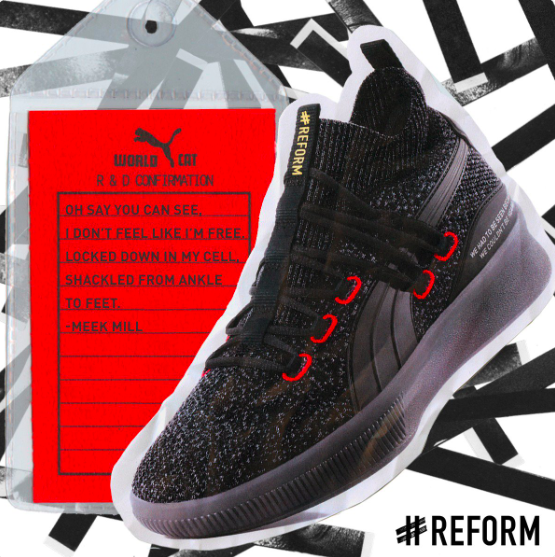
In addition to the deployment of their marketing savvy, Rubin’s Masters of the Universe can engage the business and political elite in a way that outsider activists cannot. Case in point: At the press conference, Jones took pains to acknowledge all the elected officials in attendance — noting that, playing against type — none of them were there to speak; they were there to support, and to listen, and to learn. Among them were our own Attorney General Josh Shapiro, and Governor Tom Wolf.
Well, if Rubin, Kraft and the others can stimulate the business class, it could widen the constituency for reform beyond the already converted. “As an entrepreneur, we need these workers,” Rubin said in his remarks at the press conference. Therein lies the genius of Rubin’s big, bold idea, as represented by the presence of all those pols in the audience: If the donor class suddenly aligns with the interests of the underclass, the attention of policymakers will follow.
But to do that, to make criminal justice reform safe for the Shapiros and Wolfs of the world, Jones and Rubin have to make clear that decarceration does not mean sacrificing public safety. I’m right there with him when District Attorney Larry Krasner talks about how cash bail criminalizes poverty, but he loses me when he plea bargains murders and attempted murders. White Mt. Airy liberals don’t pay the price when violent criminals return to the ‘hood; overwhelmingly, African-Americans in distressed neighborhoods do.
“Look, lots of people belong in prison,” Rubin told me. “We’re not talking about putting violent people back out on the street. People say to me our goal is big, but I think it’s conservative to say there are a million people caught up in the revolving door parole and probation system.”
Which is why, Rubin says, REFORM will be focusing so heavily on the parole and probation system. “Look, lots of people belong in prison,” he told me. “We’re not talking about putting violent people back out on the street. People say to me our goal is big, but I think it’s conservative to say there are a million people caught up in the revolving door parole and probation system. They’re in for a minimal amount of drugs and can’t get out. They miss an appointment or make an illegal u-turn, and back they go. Jail should be for murderers and rapists. Why are we putting someone who smoked weed behind bars?”
According to Columbia University’s Justice Lab, Pennsylvania has the nation’s highest number of people under the parole or probation system—roughly three times the size of the incarcerated population. How many thousands of them are getting re-sentenced to prison time like Mill, not out of a concern for public safety, but because some judge felt dissed? In a 2017 Kennedy School of Government report, the answer would seem to be plenty. In “Less Is More: How Reducing Probation Populations Can Improve Outcomes”, the authors argue that there is a direct link between the probation and parole system, on the one hand, and mass-incarceration, on the other. Probation, they say, has not served as an alternative to incarceration so much as a driver of it.
You can support REFORMDo Something
Interestingly, within days of Rubin, Jones, Meek Mill and Jay-Z all killing it at their press conference—Jay-Z spoke movingly of the inner-city breakdown in family that has contributed to the streets to prison pipeline—former Vice President Joe Biden was admitting that the 1994 Crime Bill that he supported was “a big mistake.” Here’s where—even if it’s inconvenient—progressives need to stay true to history and nuance.
The disparity in sentencing between crack and powder cocaine back then was, indeed, terrible. But let’s not look back on the 1990s and conclude that the way we prosecuted crime was the result of racist policies from liberals like Biden and the Clintons. The truth is more inconvenient than that. The Left pilloried Hillary Clinton in 2016 for her husband’s 1994 crime bill, which put 100,000 cops on the street. But what went unmentioned is that that legislation came about at the behest of African-American politicians, like the Congressional Black Caucus and mayors like Baltimore’s Kurt Schmoke, who had seen what exploding crime rates had wrought in inner city communities. Back then, Congressman Charlie Rangel talked about how being able to walk safely on urban streets was actually a civil rights issue.
What does this have to do with Rubin’s crusade? Real change will not come via simple answers. Freeing one million citizens from the clutches of a broken system will be a great start, but the problems actually run much deeper, as illustrated in the gripping 2015 book Ghettoside: A True Story of Murder in America, by Jill Leovy, which doesn’t shy from complexity. Yes, we punish the trivial—law enforcement as occupying force—but we also allow lawlessness to fester on matters of life and death.
See who REFORM is working forVideo
“Impunity for the murder of black men remained America’s great, though mostly invisible, race problem,” Leovy writes. “The institutions of criminal justice, so remorseless in other ways in an era of get-tough sentencing and ‘preventive’ policing, remained feeble when it came to answering for the lives of black murder victims…Our fragmented and underfunded police forces have historically preoccupied themselves with control, prevention and nuisance abatement rather than responding to victims of violence.”
Could there be any better description of where we are in Philly right now? We’ve got countless young black men, like Mill, mired in the probation and parole system, (he’s spent over a decade on parole without committing a crime since his original 2008 gun conviction, the validity of which has even come into question); at the same time we have an exploding murder rate — up 8 percent in 2017, 15 percent last year, and a stunning 29 percent so far this year — and we have a rapidly falling “clearance rate,” the percentage of solved murders. Roughly six in 10 murderers get away with it in Philadelphia.
REFORM will not be a bank to fund activism or the middleman between inmate and lawyer. It will, instead, lobby for policy change and legal reform, and tell stories so that the system’s victims become flesh and blood in the public consciousness and not just numbers.
Seen in that light, just what kind of future will be waiting for those who Rubin will help liberate from the clutches of the criminal justice system? Ah, of course, Rubin’s been asking himself just that question, because he’s all about envisioning what’s next. That’s the entrepreneur in him. Born to a psychiatrist mother and a veterinarian father, Rubin says he was born with an entrepreneurial gene. He started his first businesses at eight years old, selling vegetable seeds door to door, then overseeing neighborhood kids — his first employees — in a snow shoveling business.
At 12, he opened a ski tune-up shop in his parent’s basement. At 14, using Bar Mitzvah money, he opened Mike’s Ski Shop in Conshohocken. Before graduating high school, he had five stores; to his parents’ chagrin, he bought a Porsche before he could legally drive. He made his first million before he could legally drink.
Articles by Larry PlattRead More
When eBay bought Rubin’s e-commerce company, GSI Commerce, for $2.4 billion in 2011, it catapulted Rubin into the elite of the American C-suite. Today, Rubin, a stocky ball of energy with infamous attention deficit disorder, is known as a relentless boardroom competitor (“no means yes”) who, mostly through sheer force of will, is remaking the e-commerce space through his three companies: Fanatics, Inc., a licensed sports merchandiser; flash sellers Rue La La and, most recently, Gilt; and Shop Runner, a retail benefits program.
As a man of action, he’s not given to introspection. When I ask if, in this middle age awakening of social consciousness, he’s found his life’s purpose, he’s quick to dismiss the invitation to self-inspect. “Ah, I don’t know,” he says. “I’m not that mature or reflective a person. I was just pissed off and knew I had to do something.”
But his wheels are always turning. He knows that just eliminating injustice doesn’t necessarily translate into providing opportunity. Maybe, Rubin says, after taking on parole and probation, that’s the next big idea: “Making prisons workforce development” feeders, he says. “I can imagine giving people second chance opportunities at my companies.”
Rubin knows he first needs to focus on liberating those one million, but then we’re off: He starts talking about how a percentage of the jobs at his Kentucky operations of his e-commerce sites Rue La La and Gilt could go to returning citizens, and he starts riffing on just how much he recognizes himself in so many that he’s met who are behind bars. They’re entrepreneurial, just like him. It’s an insight that has driven companies like Defy Ventures and Inmates to Entrepreneurs, both of which provide entrepreneurial training to the incarcerated.
But what if someone doing that kind of training was a billionaire entrepreneur himself? That alone could be game-changing.
“We’re all products of our environment,” Rubin says. “I say this all the time. If I grew up where Meek grew up? I’d be the most successful drug dealer on the planet. I’d be Pablo Escobar.”
And that’s what’s refreshing about this wokest of billionaires: Listening to him, you get the sense that every day holds newfound lessons in empathy for Michael Rubin. Think the REFORM Alliance is just some sort of PR stunt? Spend any time in Rubin’s hard-charging presence and think again. There are some people whose talent literally is—through some combination of force of will, vision and focus—getting shit done. I wouldn’t want to be on the other side of Michael Rubin’s $50 million bet.
Photo via REFORM

